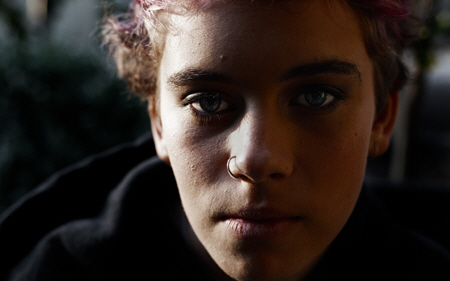“She closes her eyes. He probably won’t come back, she thinks. Or he will, differently. What they have now they can never have back again.
But for her the pain of loneliness will be nothing to the pain that she used to feel, of being unworthy.
He brought her goodness like a gift and now it belongs to her. Meanwhile his life opens out before him in all directions at once.
They’ve done a lot of good for each other. Really, she thinks, really.
People can really change one another.
You should go, she says, I’ll always be here. You know that.”
– Normal People by Sally Rooney, Pg. 273
 Adolescence and young adulthood are tremendously important life stages.
Adolescence and young adulthood are tremendously important life stages.
Adolescent and young adult stages of life can hold an immense multitude of feelings, emotions, thoughts, changes, and developments.
Young adults might be questioning themselves and those around them (as they should). This life stage is a time of great exploration and expansion when things are going well. As the well-known psychologist Erick Erickson notes, at other times, their lives can be a “crisis of identity.”
Experiencing the ups and downs of young adulthood means that exploration can become upheaval, chaos, confusion, and risk-taking. These feelings usually come from struggling to understand oneself and one’s place in this world.
This life stage can be and feel intense (to say the least!), and conflicts arise for both young adults and caregivers.
And it’s not meant to be done alone.
Change is not a smooth ride, but it does not have to burn down everything in its path.
And change is never meant to be done in isolation. As much as an adolescent or young adult might seem that they want to be alone or society tells us that they need to separate, the role of the parent/caretakers is critical.
Under best circumstances, a parent/caregiver would stay close, remain supportive, and tolerate their young adult’s changes. Easier said than done!
 Here is where I come into the picture.
Here is where I come into the picture.
I help adolescents and college-age clients struggling to define their own identities while managing the daily stressors of school, peers, and choosing a plan for their future.
With curiosity and in-depth insight, I create a safe space for them to openly share the challenges they face while decreasing behaviors that can be destructive.
Through our work together, they learn to connect to their genuine selves, tune out the noise around them, and feel more empowered to spread their wings.
And this is where you come in as the caregiver/parent.
I like to have semi-frequent consultations with the parents and individual therapy with the teenager/young adult.
Even adolescents over the age of 18, if willing, can benefit from consultations with therapists and caregivers.
These consultation sessions can help parents/caregivers navigate healthy and open communication with young adult children. And since young adults are still a significant part of their family, it is important to help them process the issues keeping the difficult patterns in place.
 Privacy is essential to maintain.
Privacy is essential to maintain.
A young adult needs to have privacy to experience life without anyone else’s eyes. This privacy helps them learn about themselves and grow with minimal outside influence impinging. Privacy helps them be more open and honest with themselves and those they love.
How do we involve parents without violating young adults’ privacy? Privacy between an adolescent/young adult and a therapist is essential, and maintaining confidentiality is important for establishing trust and respect.
I uphold confidentiality, which means if I feel that it would be imperative to share specific information with the caregiver/parents, I will first speak to my client, the adolescent/teenager, before proceeding. I would never go against the wish of the young adult unless I am mandated to do so.
There are three reasons why a therapist would break confidentiality. If the client is in grave danger to themselves or someone else, experiences abuse, or threatens homicide or suicide, a therapist must break confidentiality.
Secrecy is not the same as privacy.
On the other hand, secrecy is when an adolescent/young adult struggles with something that has not been communicated to the parents/caregivers and has a high probability of causing harm, danger, or even being life-threatening.
Shame and fear often motivate secrecy, and both components block healthy development.
Secrecy often grows more extensive when it remains secret and builds destructive behaviors, thoughts, and feelings. I do not hold these secrets because I know that they are often destructive and avoidable by shedding light on the issue. I will work with the adolescent/young adult to come up with their own way to inform parent/caregivers.
 What’s the next step?
What’s the next step?
If you are a teenager or young adult struggling with feelings, thoughts, or moods and need a “non” related person to talk and process with, give me a call (510) 600-3734. Please leave a voice message or text with your name, number, and best times to reach you, and I will get back to you within 48 hours.
If you are the caregiver/parent of an adolescent/young adult, please give me a call, too! I offer a 15-minute phone consultation to discuss what you are looking for and why you currently seek therapy for your adolescent/young adult.
Let’s build that “emotional muscle” to tolerate risks and stressors while enhancing skills and coping strategies to reduce unwanted and destructive behaviors. I look forward to your call!

